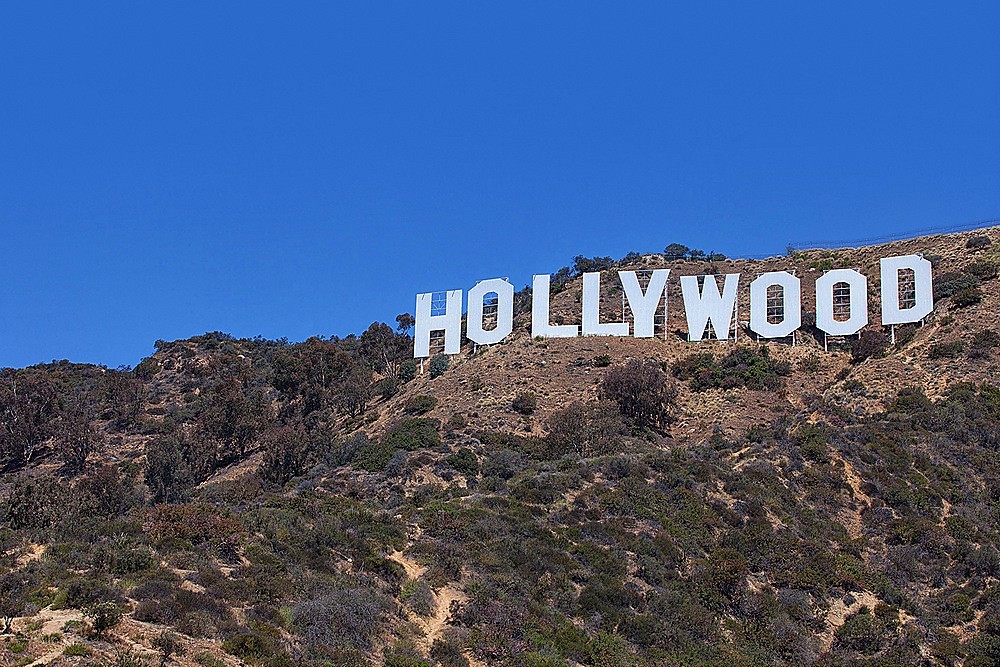 美国密西根州迫切希望进行一场好莱坞式大改造。为了五亿美元,片厂非常乐意协助。图/Ingimage
美国密西根州迫切希望进行一场好莱坞式大改造。为了五亿美元,片厂非常乐意协助。图/Ingimage
States Have Spent $25 Billion to Woo Hollywood. Is It Worth It?
Michigan desperately wanted a Hollywood makeover. And for $500 million, studios were more than happy to help.
/*.innity-apps-underlay-ad {z-index: 34 !important; }*/ .innity-apps-underlay-ad ~ .header {z-index: 35;} .innity-apps-underlay-ad ~ .main-content .inline-ads { background: transparent;} #eyeDiv ~ .footer{ position: relative; z-index: 2;} /* sizmek_underlay 投递调整置底 z-index 权重 */ .article-content__abbr__text {display:inline-block;} /* to be remove */美国密西根州迫切希望进行一场好莱坞式大改造。为了五亿美元,片厂非常乐意协助。
When the state started writing checks in 2008 from one of the nation’s most generous film incentive programs, productions flocked there, making box-office hits such as Clint Eastwood’s “Gran Torino,” Sam Raimi’s “Oz the Great and Powerful” and Zack Snyder’s “Batman v Superman: Dawn of Justice.”
2008年,密西根州这项堪称全美最慷慨之一的电影奖励计划开出支票时,制片计划涌入该州,拍摄票房大作包括克林伊斯威特「经典老爷车」、山姆雷米「奥兹大帝」和查克史奈德「蝙蝠侠大战超人:正义曙光」。
Then Michigan did the math.
然后密西根州计算得失。
After a state economist determined that “the film incentives represent lost revenue” and that their economic benefits were “negligible,” Michigan, which cut funding for police and schools while facing a severe budget deficit, eventually decided to end its incentives.
该州一名经济学家确认「电影奖励计划等于收入损失」,且其经济效益「微不足道」,面临严重预算赤字而削减警政和学校经费的密西根州,最终决定终止这个奖励计划。
As the program gradually unwound, “The Avengers” moved to Cleveland and “Iron Man 3” went to Wilmington, North Carolina. Even “Detroit” was filmed in Boston.
随著计划渐渐废弛,「复仇者联盟」移往俄亥俄州克里夫兰拍摄、「钢铁人3」移往北卡州威明顿,连「底特律」都是在波士顿拍摄。
Now, almost a decade after the state stopped paying Hollywood, lawmakers think they can no longer afford not to.
现在,在密西根州停止补助好莱坞近10年后,议员们认为他们再也禁不起不这么做的后果。
“We’re not on an even playing field,” said Dayna Polehanki, a state senator and one of the sponsors of legislation that would thrust Michigan back into fierce competition with dozens of states trying to woo studios. “We’re not even in the game.”
密西根州州参议员达伊娜.波列汉基表示,「我们没有处在一个公平竞争环境」,「我们甚至连这场比赛都没参与」。波列汉基是法案发起人之一,希望让密西根州重返激烈竞争,试图与其他数十州争夺片厂。
Supporters say a more carefully tailored program will function better than the previous one, creating jobs and invigorating spending. But economists have long been dubious about the value of subsidies for film and television, saying they have plunged state governments into a race to the bottom where the biggest winner, by far, is Hollywood.
支持者表示,更精心设计的计划运作会比先前的更好,创造工作机会和刺激消费。但经济学家长久以来怀疑补助影视的价值,称这些补助让各州逐底竞争,而迄今为止最大的赢家是好莱坞。
A survey by The New York Times found that states have distributed more than $25 billion to film incentive programs.
纽约时报一项调查发现,各州已为电影奖励计划共拨款超过250亿美元。
“You could find almost an unlimited number of better uses for the same dollars,” said Michael Thom, a tax expert at the University of Southern California whose work has been critical of incentives. “Who on earth would say, ‘Keep giving the money to Hollywood; my kid’s school doesn’t need new books’?”
南加大税务专家托姆一直对电影奖励措施持批评态度。他说:「同样一笔钱,你可以找到几乎无数种更好的用途。到底谁会说,『继续把钱给好莱坞,我孩子的学校不需要新书』?」
Even as officials have rethought public support of private industry, 38 states now allocate taxpayer dollars to film and TV production. Arizona, Indiana, Kentucky, Missouri and West Virginia have all introduced programs within the past two years. Like Michigan, Wisconsin has drawn up legislation that would bring back its program.
尽管官员已重新考虑由公部门支持私人产业,仍有38个州将纳税人的钱分配给影视制作。亚利桑纳州、印第安那州、肯塔基州、密苏里州和西维吉尼亚州都在过去两年推行相关计划。就像密西根州,威斯康辛州也起草恢复相关计划的立法。
文/Matt Stevens and Christopher Kuo 译/罗方妤